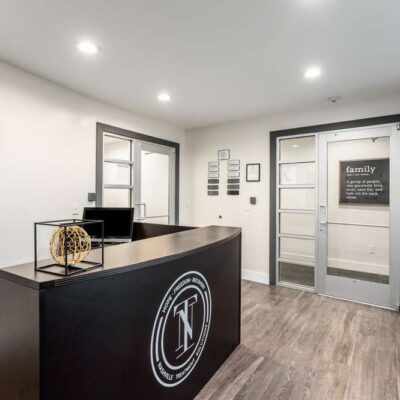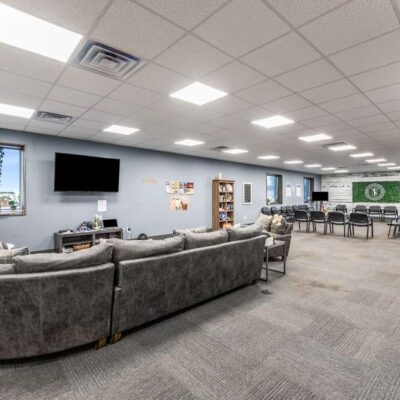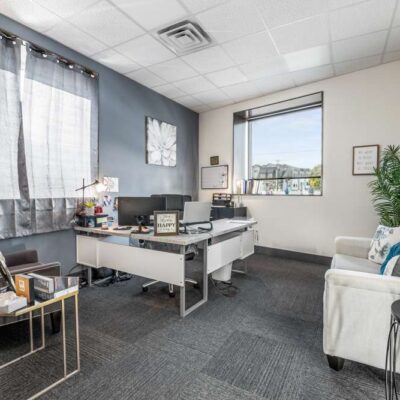Depression Treatment in Nashville, Tennessee
Everyone gets the blues from time to time, but depression is an entirely different situation. Nashville Treatment Solutions understands how to work with people who need help understanding and overcoming their mental health disorders.
Our depression treatment in Nashville provides access to expert level clinicians that can guide you on a path to recover from depression. As well, we work with each individual to provide any necessary medications that help ease their depression symptoms. When someone develops depression, they find it difficult to do well in areas such as work, school, and family obligations.
You are not alone. You deserve to get help.
Nashville Treatment Solutions is an industry leader in addiction treatment. Our team of top medical experts specialize in dual diagnosis treatment and are committed to ensuring that each patient is treated as an individual. Call us today, we’re available 24/7.
WHAT TO LOOK OUT FOR
How Do I Know I Need Depression Treatment?
Depression can be debilitating and cause great hopelessness or can be silent or manifest itself as a lack of energy throughout the day.
Recognizing that you may have depression symptoms are the first start to recovering. Here are some signs you may need professional help:
- Persistent Sadness or Hopelessness: Feeling down, sad, or hopeless most of the day nearly every day can be a sign of depression.
Loss of Interest: A significant loss of interest or pleasure in activities that you once enjoyed is a common indicator.
Changes in Appetite or Weight: Significant weight loss or gain, or a decrease or increase in appetite, especially when not trying to manage your weight, can be symptoms.
Sleep Disturbances: Experiencing insomnia (difficulty falling or staying asleep) or hypersomnia (sleeping too much) nearly every day.
Feelings of Worthlessness or Excessive Guilt: Experiencing persistent feelings of worthlessness or disproportionate guilt over past failures or actions.
Difficulty Concentrating: Finding it hard to think, concentrate, or make decisions is common in depression.
Physical Symptoms: Experiencing physical symptoms that don’t respond to treatment, such as headaches, digestive disorders, or chronic pain.
Our Nashville Depression Treatment Programs
Suffering with depression oftentimes takes different forms of treatment so that individuals can utilize skills they’ve learned in treatment to daily life. Our depression treatment programs include the following
Partial Hospitalization Program (PHP)
Partial Hospitalization Programming or PHP is a structured treatment option that provides comprehensive psychiatric and therapeutic support for individuals with moderate to severe depression. PHP typically involving several hours of therapy per day, five or six days a week. This program allows clients to receive intensive treatment during the day while returning home at night, bridging the gap between inpatient care and outpatient treatment.
Intensive Outpatient Program (IOP)
Intensive Outpatient Programming or IOP is designed for individuals who need more support than traditional outpatient care but less than residential or partial hospitalization, involving multiple therapy sessions per week that last a few hours each. At Nashville Treatment Solutions, we also offer evening IOP for those that have other obligations during the day.
Outpatient Program (OP)
Outpatient treatment for depression offers the most flexibility, involving regular visits and ongoing therapy and medication management as needed. This program is suitable for individuals with mild to moderate depression who can function relatively well in their daily lives. Admission into our outpatient program is decided on a case-by-case basis.
What to Expect at our Depression Treatment Programs in Nashville, Tennessee
At Nashville Treatment Solutions, we understand that everyone is different. That’s why we offer a variety of programs and therapies to meet your unique needs.
Our depression treatment in Nashville uses several types of therapy that help get to the root of a person’s depression. Each therapy modality offers a way to gain insight into a person’s mental health and teach them how to control their symptoms. The types of therapy we provide include:
Cognitive Behavioral Therapy
CBT helps individuals with depression by teaching them to recognize and change negative thought patterns and behaviors that contribute to their depressive symptoms. This therapy focuses on solving current problems and changing unhelpful thinking and behavior.
Dialectical Behavioral Therapy
DBT assists people with depression by combining standard cognitive behavioral techniques with mindfulness, distress tolerance, and emotion regulation. It is especially helpful for those who experience intense emotional responses, helping them manage their emotions more effectively.
Psychiatry
Psychiatrists can help manage depression by diagnosing it accurately and prescribing antidepressant medications that adjust brain chemistry to improve mood. They also monitor the client’s progress and can adjust treatment plans accordingly, including combining medication with psychotherapy.
Group Therapy
Group therapy provides a supportive environment for individuals with depression to share their experiences and learn from others facing similar challenges. This support can decrease feelings of isolation and provide different perspectives on coping strategies.
EMDR Therapy
EMDR therapy helps clients with depression by processing traumatic memories that may be contributing to their depressive symptoms. It uses guided eye movements to help the brain reprocess these memories, potentially reducing emotional distress.
Holistic Therapy
Holistic therapy addresses depression by focusing on the individual’s overall well-being, including mind, body, and spirit, rather than just the symptoms. We utilize modalities such as yoga, meditation, and and exercise are often used.
Music Therapy
Music therapy can aid individuals with depression by using music experiences, like playing, creating, or listening to music, to improve mood and emotional regulation. It provides a non-verbal outlet for expression and can be a powerful tool for emotional release and communication.
[Recommended: “Alternative Treatments for Depression“]
Why Nashville Treatment Solutions?
The programs at Nashville Treatment Solutions are unique. With a small intimate setting, we get to know each client as apart of our NTS family, placing each client as a top priority. Here’s why NTS may be the right choice for your depression treatment:
Staff That Cares: Our primary aim is to make each client feel valued and understood. Recognizing that depression is only one part of your journey, we ensure that every interaction within our facility is filled with respect, compassion, and empathy.
Ideal Location: Our facility is perfectly situated in the heart of Nashville, blending a serene and relaxed atmosphere with the dynamic energy of the city. The design features industrial aesthetics with high ceilings and expansive outdoor spaces, creating an inviting environment.
Favorable Client to Staff Ratio: With a client to staff ratio of 2:1, Nashville Treatment Solutions offers a level of attention and personalized care that is exceptional in the field of mental health treatment. This advantageous ratio ensures that our staff can spend more time with each client, facilitating a more tailored and effective treatment plan, and fostering stronger relationships that are crucial for successful recovery.
Begin Depression Treatment in Nashville, Tennessee Today
When someone lives with depression, it makes it impossible to live life fully. Nashville Treatment Solutions provides a quality program that helps people understand their illness and learn to manage their symptoms. Our depression treatment in Nashville features multiple levels of outpatient care in order to meet each person’s needs. We employ a caring staff of experienced therapists and can assess each person for the right medication. We work with our patients to make sure they come out from under the umbrella of depression and begin to enjoy life again.
Are you ready to enjoy improved mental health and find out more about how to treat your depression? Contact us today and let us tell you how we can help you.
More on Depression
Too often, people mistake depression for just being down or having the blues. They think if they just wait it out or adopt a “turn that frown upside down” mantra, they will be fine. Something difficult can happen, such as a divorce, job loss, or illness. As a result, some people feel sad and upset for a set period of time, then begin to feel better and return to their usual state of emotional wellness. For others, the depressive state does not end. They continue to feel sad, hopeless, and unable to improve their mood. Depression begins to overshadow all areas of a person’s life and affects their ability to experience joy or hope. For many, it reaches the point where they have difficulty just getting out of bed or leaving the house.
Having depression can make a person wonder what caused it. For some, it’s fairly easy to find an initial trigger, such as the death of a loved one or a divorce. For many others, the cause isn’t clear. Genetics can play a factor in developing the disease. Someone with a family history of depression has an increased chance of developing it.
In addition, imbalances in brain chemistry can contribute to developing the disease. When other mental health disorders go untreated, such as PTSD or anxiety, it can contribute to becoming depressed. As well, abusing alcohol and drugs can affect a person’s mood. This is why many mental health programs also offer alcohol rehab and drug rehab at the same time.










